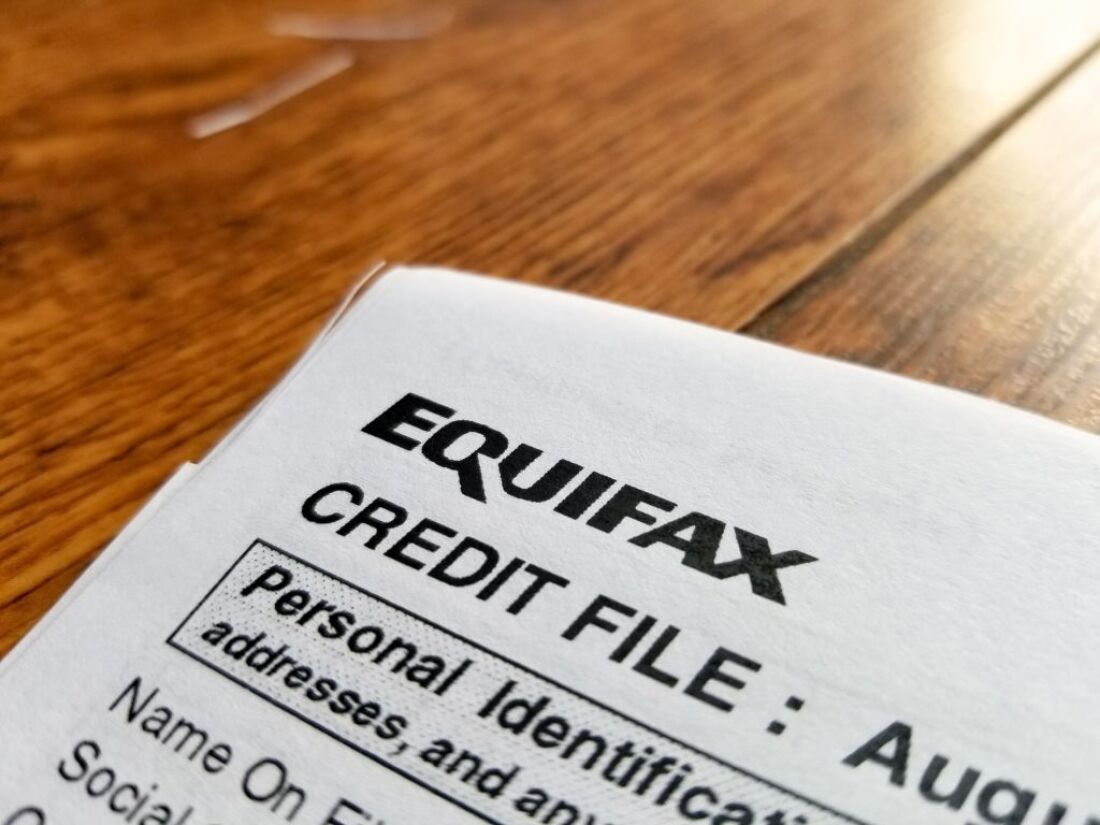
A proposed new rule would ban medical debt from credit score reviews.
Smith Assortment/Gado/Getty Pictures/Archive Pictures
cover caption
toggle caption
Smith Assortment/Gado/Getty Pictures/Archive Pictures
Individuals would not have to fret about medical money owed dragging down their credit score scores below federal rules proposed Tuesday by the Client Monetary Safety Bureau.
If enacted, the principles would dramatically broaden protections for tens of thousands and thousands of Individuals burdened by medical payments they’ll’t afford.
The rules would additionally fulfill a pledge by the Biden administration to handle the scourge of well being care debt, a uniquely American drawback that touches an estimated 100 million folks, forcing many to make sacrifices akin to limiting meals, clothes, and different necessities.
“Nobody must be denied entry to financial alternative just because they skilled a medical emergency,” Vice President Kamala Harris stated Tuesday.
The administration additional known as on states to broaden efforts to limit debt assortment by hospitals and to make hospitals present extra charity care to low-income sufferers, a step that would forestall extra Individuals from ending up with medical debt.
And Harris urged state and native governments to proceed to purchase up medical debt and retire it, a technique that has turn out to be more and more widespread nationwide.
Credit score reporting, a risk historically utilized by medical suppliers and debt collectors to induce sufferers to pay their payments, is the commonest assortment tactic utilized by hospitals, a KFF Well being Information evaluation has proven.
Though a single unpaid invoice on a credit score report could not massively have an effect on some folks, the impression may be devastating for these with massive well being care money owed.
There may be rising proof, for instance, that credit score scores depressed by medical debt can threaten folks’s entry to housing and gas homelessness. Folks with low credit score scores can even have issues getting a mortgage or may be compelled to borrow at greater rates of interest.
“We have heard tales of people who could not get jobs as a result of their medical debt was impacting their credit score rating and so they had low credit score,” stated Mona Shah, a senior director at Group Catalyst, a nonprofit that’s pushed for expanded medical debt protections for sufferers.
Shah stated the proposed rules would have a serious impression on sufferers’ monetary safety and well being. “This can be a actually large deal,” she stated.
Administration officers stated they plan to assessment public feedback about their proposal by the remainder of this yr and hope to difficulty a remaining rule early subsequent yr.
CFPB researchers have discovered that medical debt — in contrast to different kinds of debt — doesn’t precisely predict a shopper’s creditworthiness, calling into query how helpful it’s on a credit score report.
The three largest credit score companies — Equifax, Experian, and TransUnion — stated they might cease together with some medical debt on credit score reviews as of final yr. The excluded money owed included paid-off payments and people lower than $500.
These strikes have considerably diminished the variety of folks with medical debt on their credit score reviews, authorities knowledge reveals. However the companies’ voluntary actions disregarded many sufferers with greater medical payments on their credit score reviews.
A current CFPB report discovered that 15 million folks nonetheless have such payments on their credit score reviews, regardless of the voluntary modifications. Many of those folks reside in low-income communities within the South, in line with the report.
The proposed guidelines wouldn’t solely bar future medical payments from showing on credit score reviews; they might additionally take away present medical money owed, in line with administration officers.
Officers stated the banned debt would come with not solely medical payments but additionally dental payments, a serious supply of Individuals’ well being care debt.
Regardless that the money owed wouldn’t seem on credit score scores, sufferers will nonetheless owe them. That implies that hospitals, physicians, and different suppliers might nonetheless use different assortment techniques to attempt to get sufferers to pay, together with utilizing the courts.
Sufferers who used bank cards to pay medical payments — together with medical bank cards akin to CareCredit — may even proceed to see these money owed on their credit score scores as they might not be coated by the proposed regulation.
Hospital leaders and representatives of the debt assortment business have warned that proscribing credit score reporting could have unintended penalties, akin to prompting extra hospitals and physicians to require upfront cost earlier than delivering care.
However shopper and affected person advocates proceed to name for extra motion. The Nationwide Client Legislation Heart, Group Catalyst, and about 50 different teams final yr despatched letters to the CFPB and IRS urging stronger federal motion to rein in hospital debt assortment.
State leaders even have taken steps to broaden shopper protections. In current months, a rising variety of states, led by Colorado and New York, have enacted laws prohibiting medical debt from being included on residents’ credit score reviews or factored into their credit score scores. Different states, together with California, are contemplating comparable measures.
Many teams are additionally urging the federal authorities to bar tax-exempt hospitals from promoting affected person debt to debt-buying corporations or denying medical care to folks with past-due payments, practices that stay widespread throughout the U.S., KFF Well being Information discovered.
KFF Well being Information is a nationwide newsroom that produces in-depth journalism about well being points and is without doubt one of the core working applications at KFF — an impartial supply for well being coverage analysis, polling, and journalism.
